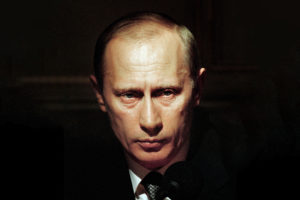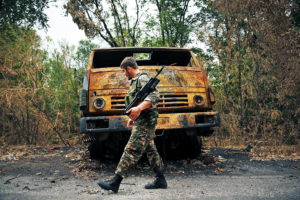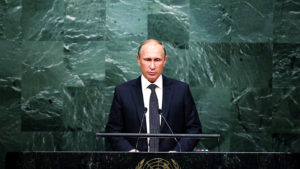Every January I think of eastern Ukraine. Wherever I am in the world, it’s never as cold as the winter months I spent there during the height of war between Kyiv and Moscow between 2014-2015. Technology stops working, your knees groan, your breath is a constant cloud.
But it’s not just the cold that is constant in Ukraine’s east: Russian soldiers have been there for almost eight years — and now the Kremlin looks ready for yet another fight. This latest buildup started early last year when, after a few years of relative quiet, it sent around 110,000 soldiers to the border — the largest military build-up there since 2014. And then: nothing. Until now.
In recent weeks, the Russian forces have been bolstered by naval infantry, heavy weapons, logistical units, and parachute battalions. Startled reservists are arriving on the border, as are units from Russia’s east, having trundled thousands of miles across the country by train to line up and face down their Ukrainian neighbours. Independent Belarusian journalists are reporting that Russian hardware is arriving in Belarus for “snap military drills”, supposedly to be held in February. Perhaps it’s unsurprising that Washington has accused Russia looking for an excuse to invade: White House Press Secretary Jen Psaki claimed that US intelligence had “information that indicates Russia’s already prepositioned a group of operatives to conduct a false-flag operation”.
The background to all of this is diplomacy — of sorts. On Sunday evening, US Deputy Secretary of State Wendy R. Sherman and Russian Deputy Foreign Minister Sergey Ryabkov met in Geneva in the first of several planned meetings to try to resolve the crisis. The two positions are clear. Washington wants Russia to de-escalate by pulling back its troops and agreeing to respect Ukrainian territorial integrity and sovereignty; Russia insists that the US and Nato accede to its demand not to expands eastwards, and that Ukraine will never become a member.
The question is: why all this now? Russian fears of Nato encirclement are as old at the organisation itself. According to Vladislav Davidzon, Ukrainian-American author of the original and superb From Odessa with Love, the reason is simple. “High oil prices mean Russia is flush with cash,” he tells me. “After having had a very good 2021, the Kremlin sees this as a decisive moment. They see a weak American president in the White House who has continually talked tough but constantly signalled that he wants a quiet reset of policy.”
He continues: “As soon as Biden took office, the Kremlin started testing him with the initial buildup early last year. Everything since then has confirmed their belief. The Russians think they will never have a better opportunity to reorder things in their favour.”
But still the US tough talk continues. Earlier this month, the Biden administration threatened “decisive” action against Russia if it crossed the border, outlining a series of “punishing” financial, technology and military sanctions against Moscow that it said would go into effect within hours of an invasion of Ukraine.
It’s a depressing moment when, as a political analyst, you realise that one of the most dominant trends in international politics is déjà vu. Almost eight years ago I sat in Kyev’s government offices while politicians chain-smoked their way through military briefings and repeatedly wondered when the much-promised support from the West would come. I squatted in the snow with soldiers who asked me why the West could not just give them a few lousy javelin anti-tank guided missile systems to stop so many of their comrades being blown to bits. Eventually the javelins came, but only after years of painful diplomacy, international pressure and former president Barack Obama had left office. By the time Trump finally gave the green light, hundreds of Ukrainians had died.
What made all of this worse was that — at each stage of the crisis — the Ukrainians had been led to believe that help was coming; that the US or Germany or Britain would finally do what it had long threatened and impose sanctions on Russia that would a make it stop, or provide the type of military help to turn things around.
Now we are here again: the same questions and the same requests, though the Ukrainians understand the game now. I recently spoke to a Ukrainian national security expert and she told me something that stuck in my mind: “For years the Brits gave us so much support — verbally. But it was only after the Skripal poisoning that we really felt the difference. The Russians poisoning a British agent in their own country got the British mad. After that it became personal for you guys.”
She was right. In the end, talk is talk but the national interest — and its attendant, pride — reigns alone. As Davidzon points out, for all of Biden’s strong rhetoric, he continues to resist the idea of making sanctions on Russia’s Nord Stream 2 pipeline project part of congressional law.
In this, the US is backing its most important EU partner: Germany, which wants to decouple the pipeline from any EU or Nato-wide sanctions package. Europe sucks on Russian gas like a crackhead on his pipe. And how many junkies can realistically sanction their dealer? Germany is weak here; and the US is made to look weak by proxy.
Now add domestic politics into the mix. The Kremlin has gone too far to back down now. If you govern by fear and control, you can never, ever afford to look weak. Ukraine, meanwhile, has its own problems. Yesterday morning former president Petro Poroshenko landed in Kyev to face charges of “state treason” for having “supported the activity of terrorist organisations”. Simply put: his administration is alleged to have assisted the Russian-backed and commanded separatists in selling coal in the country’s east even as Ukrainian troops were being killed.
So the situation is combustible. Neither side can afford to lose face with their own people. Once more war is likely to come and, when all is said and done, it is largely because of our own weakness.
Why did Putin just walk into Crimea in 2014 and take it? Because he knew the West would talk but not act. Why did Belarusian President Alexander Lukashenko feel able to order a Ryanair plane down and take a dissident off it last year? Because he knew the West would talk but not act. Why is Moscow, now via Minsk, continuing to weaponise migrants against the EU? Well, you get the point. Moscow suffers no real consequences for its behaviour, so why should it stop?
All the while, the West talks endlessly without really doing much. And that only makes things worse: for Ukrainians, for democratic Belarusians and, above all, for our own credibility. The biggest winner is always the Kremlin.
It’s time to put up or shut up. Either we back Kyiv — by giving it full military support and smashing Russia with sanctions, or we have the guts to tell the Ukrainians that we are abandoning the non-Nato east to Russia and start to draw real red lines that we will actually enforce. It’s time to back Ukraine — or, once and for all, just tell these people, who have suffered so much to defend our interests, that they are on their own for good.
Disclaimer
Some of the posts we share are controversial and we do not necessarily agree with them in the whole extend. Sometimes we agree with the content or part of it but we do not agree with the narration or language. Nevertheless we find them somehow interesting, valuable and/or informative or we share them, because we strongly believe in freedom of speech, free press and journalism. We strongly encourage you to have a critical approach to all the content, do your own research and analysis to build your own opinion.
We would be glad to have your feedback.
Source: UnHerd Read the original article here: https://unherd.com




